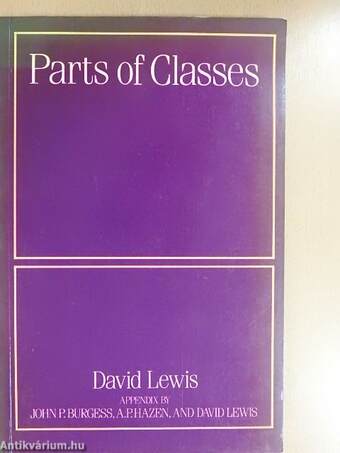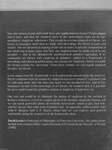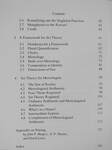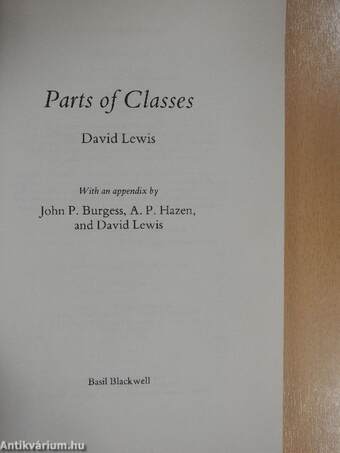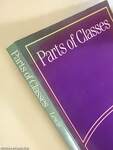1.066.452
kiadvánnyal nyújtjuk Magyarország legnagyobb antikvár könyv-kínálatát

VISSZA
A TETEJÉRE
JAVASLATOKÉszre-
vételek
Parts of Classes
| Kiadó: | Basil Blackwell |
|---|---|
| Kiadás helye: | Oxford |
| Kiadás éve: | |
| Kötés típusa: | Fűzött papírkötés |
| Oldalszám: | 155 oldal |
| Sorozatcím: | |
| Kötetszám: | |
| Nyelv: | Angol |
| Méret: | 23 cm x 15 cm |
| ISBN: | 0-631-17656-X |
naponta értesítjük a beérkező friss
kiadványokról
naponta értesítjük a beérkező friss
kiadványokról
Előszó
TovábbFülszöveg
Docs llic nolioii of pari and whole have any application to classes? U'wis arjiues thai 11 does: and that the smallest parts of any (non-empty) class are its one-membered "siniileton' subclasses. That results in a reconception of sel theory. Set theory is entan^ílcd, more than we think, with mereolo^y: the theory of parts and w holes. The set-theoretical making of one oul ol many is just the composition of one w hole out of many parts. But first, one singleton must be made oul of its one member - this is the distinctively set-theoretical primitive operation. If we axiomatize set theory with singleton as primitive, added to a framework of mereology (and plural quantification), our axioms for singleton' closely resemble the Peano axioms for successor'. From these axioms, we can regain standard iterative set theory.
Ix'wis argues that the framework' is well understood and ontologically innocent. But he complains that the not ion of a singleton was never properly explained: talk of... Tovább
Fülszöveg
Docs llic nolioii of pari and whole have any application to classes? U'wis arjiues thai 11 does: and that the smallest parts of any (non-empty) class are its one-membered "siniileton' subclasses. That results in a reconception of sel theory. Set theory is entan^ílcd, more than we think, with mereolo^y: the theory of parts and w holes. The set-theoretical making of one oul ol many is just the composition of one w hole out of many parts. But first, one singleton must be made oul of its one member - this is the distinctively set-theoretical primitive operation. If we axiomatize set theory with singleton as primitive, added to a framework of mereology (and plural quantification), our axioms for singleton' closely resemble the Peano axioms for successor'. From these axioms, we can regain standard iterative set theory.
Ix'wis argues that the framework' is well understood and ontologically innocent. But he complains that the not ion of a singleton was never properly explained: talk of collecting many into one does not ap[)ly to one-membered sets, and in fact introduces us only to the mereology in set theory. He wonders how it is possible for us to understand the primitive notion of singleton, ii Indeed we do.
One way out would be to eliminate the notion of singleton by the method of Ramsey sentences: even if we caniiot speak oí the meml)ei'-singlel()n relation, si ill we can speak generally about all relations structurally suited to |)lay that role, and we can say that some such relations exist. An appendix, written jointly w ith Llohn !'. Burgess and A. P. flazen. shows how we can express such general statements using the resources ol the framework alone.
David Lewis is I'rol'essor of Philosophy at Princeton University. I lis publications include Convcniion ( 1969). Counlcrfucnuils ( 1973) and On I he Plitivlii \ oí Worlds (1986). Vissza
Témakörök
- Filozófia > A szerző származása szerint > Amerikai
- Filozófia > Témaköre szerint > Logika
- Idegennyelv > Idegennyelvű könyvek > Angol > Filozófia > Nemzetisége szerint > Amerikai
- Idegennyelv > Idegennyelvű könyvek > Angol > Filozófia > Témaköre szerint > Logika
- Filozófia > Témaköre szerint > Tanulmányok, esszék
- Idegennyelv > Idegennyelvű könyvek > Angol > Filozófia > Témaköre szerint > Tanulmányok, esszék



